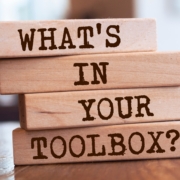DBT Skills Series 14
Validation — The Skill That Calms Conflict and Builds Connection
Have you ever tried to share how you feel, only to be told, “You’re overreacting,” “It’s not that bad,” or “You shouldn’t feel that way”?
Those moments sting. What we often hear is: “Your feelings don’t make sense.”
Now imagine someone saying, “I get why that hurt,” or “It makes sense you’d feel frustrated after that.”
That shift — from dismissing to understanding — is the power of the DBT validation.
Validation is one of the most essential skills in Dialectical Behavior Therapy (DBT), as it calms emotional storms, prevents conflict from escalating, and strengthens connections — both with others and with oneself.
What Validation Really Means
Validation means communicating that someone’s thoughts, feelings, or behaviors make sense in a given situation — even if you disagree with them.
 It’s not about saying, “You’re right.” It’s about saying, “I understand where you’re coming from.”
It’s not about saying, “You’re right.” It’s about saying, “I understand where you’re coming from.”
In DBT, we also use self-validation — acknowledging that our own feelings, thoughts, and actions make sense given what we’ve been through or what we’re currently facing.
When we invalidate ourselves (“I shouldn’t feel this way,” “I’m being ridiculous”), emotions intensify.
When we validate ourselves (“Understandably, I’m anxious about this conversation”), emotions begin to settle.
Validation is not the same as approval. You can validate how someone feels without approving of their behavior. For example:
“It makes sense you’re upset about getting a low grade” (validating the emotion)
“You didn’t study at all last week” (not validating the behavior)
Why the DBT Validation Matters
Validation does more than soothe hurt feelings — it de-escalates conflict and builds emotional safety.
When people feel understood, they become less defensive and more open to problem-solving.
When we feel invalidated, we often shut down, argue harder, or withdraw.
In relationships, validation communicates:
- I’m listening.
- I care about your experience.
- Your feelings make sense.
And when we validate ourselves, it reinforces:
- My feelings are real and understandable.
- I don’t have to fight my emotions; I can handle them.
Over time, validation strengthens emotional regulation, empathy, and trust — the foundation for meaningful relationships and inner stability.
Researcher Brené Brown captures this beautifully in The Power of Vulnerability, describing how true connection requires courage, empathy, and the willingness to understand — the very heart of DBT validation.
You can explore more about emotional understanding and regulation in my related post, Why DBT Helps You Understand Your Emotions
What to Validate
So, what exactly should you validate?
DBT teaches us to validate the valid — the parts that make sense given the situation.
You can validate:
- Feelings: “I get why that would make you sad.”
- Thoughts: “It makes sense that you’d think that after what happened.”
- Actions: “Given how hurt you felt, I can understand why you walked away.”
You can even validate the valid part of something. For example:
“I understand that you felt ignored when I didn’t respond right away.”
(validating the emotion, not the angry outburst that followed)
This distinction — validating emotion, not necessarily the behavior — helps you stay connected without reinforcing something unhelpful.
How to Validate Others
According to DBT, validation involves both mindfulness and action. Here’s how to begin:
 Listen actively: Give your full attention — put down your phone, make eye contact, and be present.
Listen actively: Give your full attention — put down your phone, make eye contact, and be present.
Simply being attentive already communicates care.
Notice your tone and body language: Sighs, eye rolls, or walking away send a powerful message of invalidation.
Stay mindful of your nonverbal cues.
Name and reflect feelings: Try statements like, “That sounds really disappointing,” or “It makes sense that you’re angry.”
You’re not fixing — you’re reflecting.
Show tolerance and curiosity: Consider how their emotions or behaviors make sense in light of their history or current stress.
Even if you disapprove of their actions, you can understand the emotion behind them.
Respond supportively: Sometimes, a validating question can help:
“Do you want me to just listen right now, or help you find a solution?”
This honors the person’s need to be heard before being helped.
Psychiatrist Dr. Blaise Aguirre of McLean Hospital explains that validation is critical for maintaining relationships — not because it fixes problems, but because it helps people feel safe enough to face them together.
How DBT Validation Builds Self-Compassion
Self-validation is often harder than validating others — but it’s equally essential.
It’s the ability to say to yourself:
“It makes sense that I’m overwhelmed.”
“Anyone in my situation would feel hurt.”
“I have a right to feel disappointed.”
It’s not about giving yourself a free pass — it’s about acknowledging reality. You can validate your feelings and still work toward change.
In DBT terms, this is walking the middle path: holding both acceptance and growth simultaneously.
Practicing self-validation supports emotional balance by nurturing self-compassion. Psychologist Kristin Neff describes the three components of self-compassion — mindfulness, common humanity, and kindness — which align beautifully with DBT’s balanced approach to emotional healing.
Self-validation soothes the inner critic, reduces shame, and makes it easier to respond to your emotions effectively — rather than reacting impulsively or shutting down.
Bringing It All Together
Validation is one of those deceptively simple DBT skills that can transform relationships — and your relationship with yourself.
It’s the bridge between understanding and change, between reacting and responding.
When we stop trying to fix, argue, or dismiss — and instead focus on understanding — emotions settle, and connection deepens.
Whether it’s with a partner, friend, coworker, or yourself, validation says:
“You make sense. You matter.”
Your Challenge This Week
 Notice one opportunity each day to practice validation — with someone else or yourself.
Notice one opportunity each day to practice validation — with someone else or yourself.
Pause before jumping in with advice or correction, and instead reflect on what you hear or feel:
“That sounds hard.”
“I get why you’d feel that way.”
“Of course I’m anxious — this situation is stressful.”
You’ll likely notice the tone of conversations softening, tension easing, and compassion for others and yourself growing stronger.
About My Practice
I’m a Licensed Marriage and Family Therapist and the founder of Integrative Path Therapy / DBT Center of the South Bay. I specialize in Dialectical Behavior Therapy (DBT) and Eye Movement Desensitization and Reprocessing (EMDR) for adults navigating trauma, emotion dysregulation, anxiety, and complex life challenges.
I offer in-person therapy in Las Vegas, NV, and Torrance, CA, as well as online sessions across Nevada, California, and Oregon.
For more insights and resources, you can visit my Blog Page or Contact Me directly through my website.









